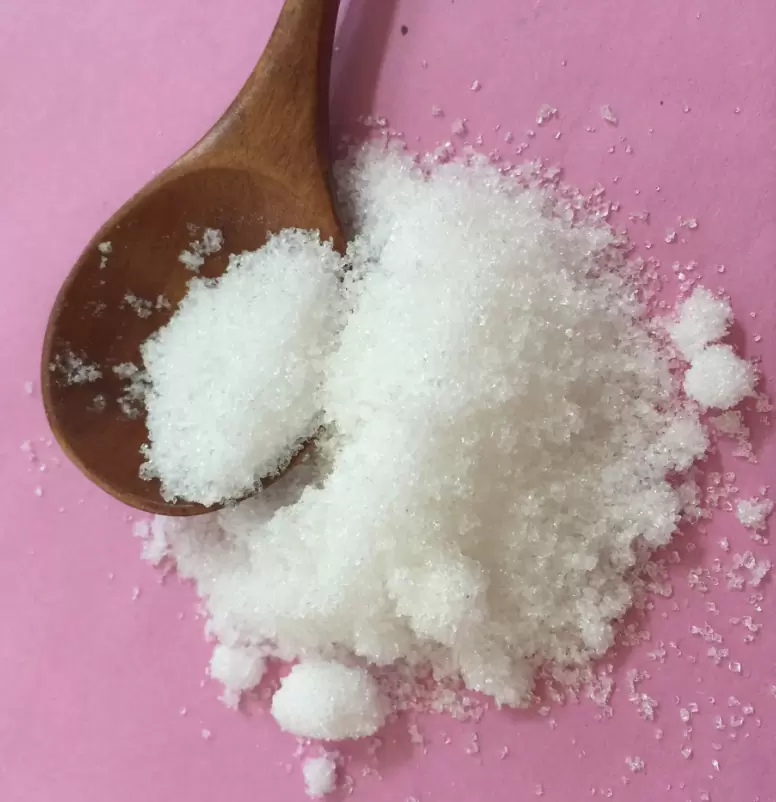Potassium citrate is a chemical compound that contains potassium and citric acid. It has a variety of uses, including as a food additive, medicine, and dietary supplement. In recent years, there has been growing interest in the potential role of potassium citrate in promoting digestive health. In this article, we will review the evidence regarding the benefits of potassium citrate for digestive health.

What is Digestive Health?
Before we delve into the potential benefits of potassium citrate, let's first define what we mean by "digestive health." Digestive health refers to the optimal functioning of the digestive system, which includes the esophagus, stomach, small and large intestines, liver, gallbladder, and pancreas. The digestive system plays a crucial role in breaking down food into nutrients, which are then absorbed into the body and used for energy and other functions.
When the digestive system is not functioning properly, a range of symptoms can occur, including bloating, gas, constipation, diarrhea, and abdominal pain. In some cases, digestive problems can be linked to more serious health conditions, such as inflammatory bowel disease, celiac disease, or colon cancer.
The Role of Potassium Citrate in Digestive Health
So, how does potassium citrate fit into this picture? Potassium citrate has been studied for its potential effects on a variety of digestive issues, including:
- Acid Reflux: Acid reflux, also known as gastroesophageal reflux disease (GERD), occurs when stomach acid flows back into the esophagus, causing heartburn, chest pain, and other symptoms. Potassium citrate may help alleviate acid reflux by neutralizing stomach acid and reducing the acidity of the stomach contents.
- Urinary Tract Infections (UTIs): While UTIs are not directly related to digestive health, they are a common problem that can be caused by bacteria in the gut. Potassium citrate may help prevent UTIs by increasing the pH of the urine, making it less hospitable to bacteria.
- Kidney Stones: Kidney stones are small, hard deposits that form in the kidneys and can cause intense pain when they pass through the urinary tract. Potassium citrate may help prevent kidney stones by increasing the pH of the urine and reducing the levels of calcium and other minerals that can contribute to stone formation.
- Constipation: Constipation is a common digestive problem characterized by infrequent bowel movements and difficulty passing stool. Potassium citrate may help relieve constipation by increasing the water content of the stool, making it easier to pass.
- Inflammatory Bowel Disease (IBD): IBD is a chronic condition that causes inflammation in the digestive tract, leading to symptoms such as diarrhea, abdominal pain, and fatigue. While the exact cause of IBD is unknown, some research suggests that potassium citrate may help reduce inflammation in the gut and improve symptoms.
Potential Side Effects of Potassium Citrate
While potassium citrate has a range of potential benefits for digestive health, it is important to be aware of the possible side effects. High doses of potassium citrate can cause stomach upset, diarrhea, and other gastrointestinal problems. In rare cases, potassium citrate can lead to hyperkalemia, a condition characterized by high levels of potassium in the blood. This can be especially dangerous for people with kidney disease or other conditions that affect the kidneys' ability to regulate potassium levels.
It is also important to note that potassium citrate can interact with certain medications, including blood pressure medications, diuretics, and nonsteroidal anti-inflammatory drugs (NSAIDs). If you are taking any medications, it is important to talk to your doctor before starting a potassium citrate supplement.

In conclusion, potassium citrate has a range of potential benefits for digestive health. It may help alleviate acid reflux, prevent UTIs and kidney stones, relieve constipation, and reduce inflammation in the gut. However, it is important to be aware of the potential side effects and to talk to your doctor before starting a potassium citrate supplement, especially if you are taking any medications or have a history of kidney disease or other health conditions. With proper use and supervision, potassium citrate may be a useful tool in promoting optimal digestive health.
